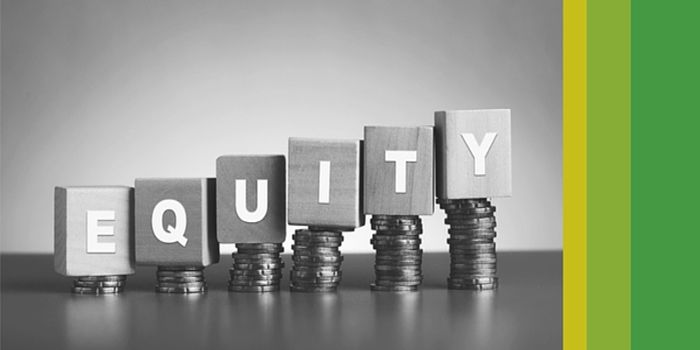
How Unemployment Fraud Affects Job Seekers and Employers Alike
Sep 24, 2024 By Susan Kelly
Unemployment fraud presents a significant challenge for both job seekers and employers, undermining the integrity of the social safety net designed to support those in need. As individuals resort to dishonest practices to claim benefits they are not entitled to, legitimate claimants face delayed services and scrutiny that can hamper their ability to secure employment. Employers, on the other hand, bear the brunt of rising insurance premiums and increased regulations aimed at curbing fraudulent activities. This cycle not only erodes trust in the unemployment system but also places a strain on resources that could otherwise be allocated to genuinely unemployed individuals. Addressing unemployment fraud is essential to ensure that assistance reaches those who truly require it while maintaining a fair and equitable system for all stakeholders involved.
Definition of Unemployment Fraud

Unemployment fraud refers to the act of improperly obtaining unemployment benefits through deceptive means. This can include providing false information on applications, failing to report earnings while receiving benefits, or intentionally misrepresenting ones employment status. Such fraudulent activities undermine the intended purpose of unemployment insurance programs, which are designed to offer financial assistance to individuals who are genuinely unemployed and actively seeking work. The consequences of unemployment fraud not only impact the individuals who commit it but also affect the broader community by diverting funds from those in legitimate need.
Impact on Job Seekers
- Delayed Access to Benefits: Legitimate job seekers may experience significant delays in receiving their unemployment benefits due to increased scrutiny and verification processes aimed at combatting fraud.
- Increased Stress and Anxiety: The fear of being wrongly accused of fraud can heighten stress levels among job seekers, making the already challenging process of job searching more difficult and overwhelming.
- Stigmatization: Job seekers may face social stigma or judgment from peers, employers, or community members if they are associated with the fraudulent activities of others, potentially impacting their confidence and employability.
- Distrust in the System: Continuous reports of unemployment fraud can lead to a general distrust in the unemployment insurance system, causing job seekers to feel uncertain about their rights and entitlements.
- Resource Misallocation: When resources are diverted to investigate fraud cases, fewer funds become available for legitimate claimants who genuinely need assistance, hindering their ability to secure basic financial support during their job search.
Emotional toll and loss of trust in the system
Unemployment can already be a stressful and emotionally taxing experience for individuals, especially during times of economic downturns. The added pressure of potential fraud accusations or delays in receiving benefits only exacerbates these challenges. This loss of trust in the system could also have long-term consequences, as it may discourage job seekers from utilizing unemployment insurance programs when they genuinely need them.
Impact on Employers
- Rising Insurance Premiums: As instances of unemployment fraud increase, so do insurance premiums for employers who contribute to unemployment insurance funds. This places an additional financial burden on businesses that are already struggling to stay afloat.
- Increased Regulations: To combat fraudulent activities, governments may enact stricter regulations and requirements for employers reporting employee wages and taxes, leading to increased administrative burdens and costs.
- Negative Impact on Hiring: Unemployment fraud can result in substantial financial losses for businesses, reducing their ability to hire new employees or provide wage increases for existing ones. This impact is particularly significant for small businesses that may not have the resources to absorb these additional expenses.
Resource misallocation and strain on businesses
Employers contribute to unemployment insurance funds through payroll taxes with the understanding that it will benefit employees who lose their jobs. When these funds are diverted towards investigating and preventing fraud, employers may feel that their contributions are being misused. The added strain of higher premiums and increased regulations can also hinder a business's growth and success, ultimately impacting the overall economy.
Broader Economic Effects
When resources intended for legitimate unemployment benefits are siphoned off due to fraudulent claims, there is a reduction in the overall purchasing power among consumers. These unemployed individuals, who would otherwise spend their benefits on essential goods and services, may face financial hardship, leading to decreased demand in local economies.
Furthermore, as businesses face rising insurance premiums and increased regulations, they may reduce investments in growth or hiring, stalling economic recovery during challenging times. This cycle can contribute to a stagnation of economic development, compounded by a general decrease in consumer confidence as citizens become wary of the integrity of social safety nets. Ultimately, addressing unemployment fraud is not just a matter of ensuring fairness in the system; it is crucial for fostering a robust and resilient economy.
How to Combat Unemployment Fraud

- Education and Awareness: Providing job seekers with information on how to properly apply for benefits and what constitutes fraud can help prevent unintentional fraudulent activities.
- Improved Verification Processes: Implementing more robust verification processes, such as cross-checking employment records with tax filings, can help detect false claims earlier and reduce delays for legitimate claimants.
- Collaboration between Government Agencies: Coordinating efforts between government agencies responsible for unemployment insurance programs and those responsible for investigating fraud can improve efficiency in addressing fraudulent activities.
- Stiffer Penalties for Perpetrators: Enforcing stricter penalties for individuals caught committing unemployment fraud can serve as a deterrent and reduce the occurrence of such fraudulent activities.
Conclusion
Addressing unemployment fraud is essential not only for protecting the integrity of the unemployment insurance system but also for safeguarding the well-being of both job seekers and employers. By understanding the multifaceted impacts of fraud on individuals, businesses, and the economy as a whole, stakeholders can formulate effective strategies to mitigate its occurrence. Through targeted education, improved verification processes, and collaboration among government agencies, we can promote a fairer system that supports those who genuinely need assistance. Ultimately, a transparent and efficient unemployment benefits program is vital for building trust in social safety nets, encouraging economic recovery, and fostering a resilient community.
-
 Investment Jan 01, 2024
Investment Jan 01, 2024How Behavioral Finance Can Help You Invest Wisely?
Traditional economic and finance theories have been questioned for years by sociologists and psychologists who argue that individuals are not logical utility-maximizing agents and that marketplaces are wasteful in the real world. The study of "irrational" conduct in people led to the development of the subject of behavioural economics in the late 1970s as a means of addressing these problems. Unsurprisingly, behavioural finance refers to the application of behavioural economics to the field of finance.
-
 Know-how Feb 02, 2024
Know-how Feb 02, 2024What Are the Ways of Transferring Wealth With Life Insurance?
After spending so many years building up your wealth, you naturally want to see it safely and securely passed on to the next generation. Through certain tax benefits, cash value life insurance is a one-of-a-kind mechanism that can facilitate the effective transfer of wealth. As a result, you may be able to leave behind a more significant portion of your wealth.
-
 Investment Feb 20, 2024
Investment Feb 20, 2024A Quick Guide: What Is Equity Compensation?
Equity pay, also referred to as stock compensation or share-based remuneration, is given to employees who are granted restricted shares and stock options. Employees who receive this benefit are allowed to become shareholders in their organizations and receive a cut of the profits.
-
 Know-how Feb 04, 2024
Know-how Feb 04, 2024Good Paying Work From Home Jobs In 2023
Is it your intention to look for legitimate remote jobs? Since I'm in a similar circumstance now, I would like someone to point me in the direction of any legitimate, well-paying work-from-home options. All of the details I uncovered seemed too good to be true.